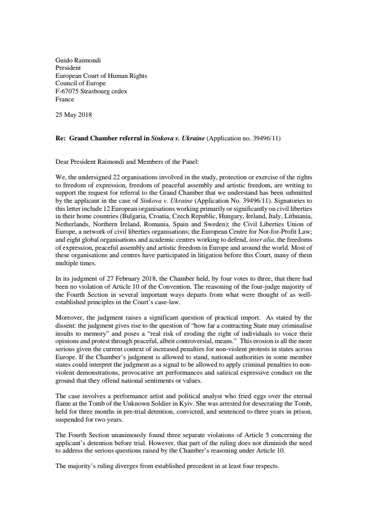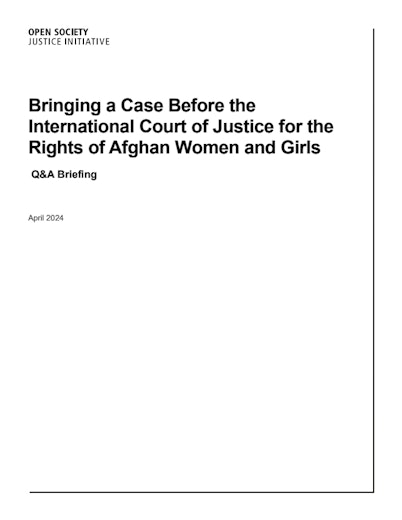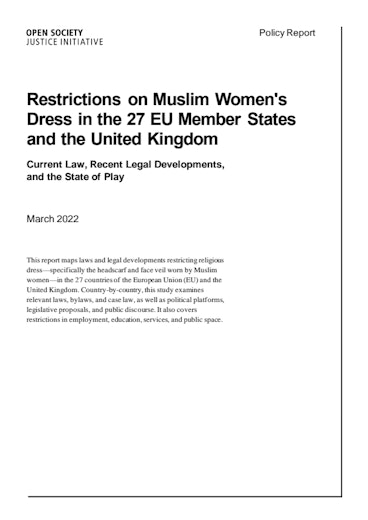Vargas Telles v. City of San Lorenzo
Citizen Claims a Constitutional Right to Know
A citizen of San Lorenzo in Paraguay was concerned about the city’s hiring and contracting procedures so requested information on the identities and remuneration of city officials and contractors. The city refused to provide the information on grounds of personal privacy, and a legal challenge was rejected on the same grounds. The Supreme Court of Paraguay found the right to information required that the assets of public officials be made public, and lead by example by publishing their own salaries. This action unleashed a Transparency Spring of demonstrations and actions against corrupt politicians, culminating in a new law on access to information.
Facts
In May 2007, José Daniel Vargas Telles, a resident of the City of San Lorenzo, filed a freedom of information (FOI) request with the city administration. In it he asked for access to the names, titles, and salary levels of city officials and contractors. Vargas suspected nepotism and abusive practices in the hiring of city employees and contractors. He relied on Article 28 of the national constitution, which guarantees everyone free access to “public sources of information.” In late June 2007, the city denied the request, arguing that the disclosure of the requested information would violate the officials’ right to privacy.
Vargas took the matter to the courts, assisted by the office of the national Public Defender (ombudsperson). He claimed that remuneration of public officials is a matter of public record and therefore salary data should be made available to the public, proactively or upon request. In fact, several central and local authorities in the country already make such information available on the Internet.
Both the first instance and appeal courts sided with the city administration, finding that the salary information at issue was protected from disclosure by personal data protection laws. The appeal court held, in addition, that Vargas had failed to prove that he suffered any personal harm from the denial of information.
Vargas and the Public Defender then challenged the appeal judgment before the Constitutional Chamber of the Supreme Court, arguing that the appeal court misapplied data protection laws and violated the applicant’s constitutional right of access to “public sources of information,” including information of public interest held by the government.
Open Society Justice Initiative Involvement
In February 2010, the Justice Initiative filed a “friend of the court” brief on the case with the Supreme Court of Paraguay. The brief provides comparative information on the status of the right of access in Latin America, the relevant jurisprudence of the Inter-American Court, and the practices of other nations regarding disclosure of official remuneration data. Members of a regional coalition of free expression groups endorsed the Justice Initiative brief through a statement filed separately with the Court.
The case was litigated by lawyers of the Environmental Law and Economics Institute (IDEA) and at the Supreme Court they were assisted by lawyers from the Access to Information Tasks Force (GIAI).
Arguments
Status of the right to know. The right of access to state-held information is well-established in international and regional law and practice.
Claude Reyes impact. The 2006 Claude Reyes judgment of the Inter-American Court, which recognized the right of access as an element of the fundamental right to freedom of expression, is directly binding on States Parties to the American Convention, including Paraguay. National courts are required to give effect to the right.
Access to salary data. Many democratic countries disclose the actual salaries of senior officials, and at least the salary levels of most civil servants and other persons paid by the state budget.
In October 2013, a unanimous Supreme Court found in favor of Vargas Telles. The judgment commenced with an extensive analysis of the Claude Reyes judgment of the Inter-American Court of Human Rights, which established a right of access to government information under Article 13 of the American Convention. The Court found that it was required to take note of Inter-American jurisprudence, and that the principles established in Claude Reyes were consistent with the national constitutional framework, in effect recognizing the constitutional status of the right of access in Paraguay.
Turning to the merits of the case, the Court noted that it should distinguish between sensitive personal data and personal data that may belong in the public domain, including potentially information on personal assets. It found that there was nothing sensitive about the names and job titles of public officials, and as such they should have been provided to the applicant without further discussion.
With respect to the salaries of public officials, the Court was not persuaded that they constitute sensitive data, especially since the Constitution required that everyone should have free access to “public sources of information.” The Court cited here the conclusions of the Justice Initiative’s third party intervention, highlighting the “clear tendency in the democratic world to consider free access to official assets declarations as essential for promoting government integrity and credibility.” In this context, personal privacy had to give way to public confidence in the integrity of government officials.
Impact
On the day of the Judgment, the Supreme Court ordered the publication on its website of the salaries of all public officials working for the judicial branch. Following their lead, the legislative branch and the administration did the same.
Following the judgment, a newspaper created a database on the salaries of state employees, and readers were invited to provide information on multiple salaries or nepotism. This lead immediately to the exposure of instances of corrupt politicians, prompting mass rallies on the streets and criminal prosecutions in what became known as the Transparency Spring in Paraguay, contributing to a change in the balance of power between citizens and public servants.
Civil society had been campaigning since 2005 for a law on access to public information. IDEA and GIAI authored a draft bill, and with a campaign of citizen engagement presented it to Congress. On August 21, 2014, the National Congress of Paraguay enacted a bill on access to public information, codifying many of the gains made by the judgment.
Judgment delivered by the Supreme Court.
The Justice Initiative files a “friend of the court” brief with the Supreme Court.
The Supreme Court admits the case for full trial.
Vargas and the Public Defender's Office file an extraordinary action of inconstitutionality with the Constitutional Chamber of the Supreme Court.
The Appeals Court confirms the first instance ruling.
The First Instance Court refuses the claim on privacy grounds.
Vargas files legal action to compel disclosure by the City.
The City denies the request.
Vargas files FOI request with the City of San Lorenzo.
Related Cases
Casas Chardon v. Ministry of Transportation
An anticorruption pressure group in Peru wanted access to the financial declarations of the Minister of Transport, but the authorities said the information was confidential.
Claude Reyes v. Chile
The Inter-American Court of Human Rights is the first international tribunal to recognize a basic right of access to government information as an element of the right to freedom of expression.
Related Work
Joint Letter: Support for ECHR Grand Chamber Referral in Sinkova v. Ukraine
A joint letter from 22 organizations supporting freedom of expression, sent to support a Grand Chamber review of the ECHR’s Sinkova v. Ukraine ruling.

Q&A: Bringing a Case Before the International Court of Justice for the Rights of Afghan Women and Girls
This paper considers 21 questions around the feasibility of bringing a complaint at the International Court of Justice against Afghanistan's Taliban for egregious and prevalent violations of women’s and girls’ rights.

Restrictions on Muslim Women's Dress in the 27 EU Member States and the United Kingdom
This policy brief and accompanying fact sheet map EU and UK laws and pending legislation restricting religious dress—specifically the headscarf and face veil worn by Muslim women.
